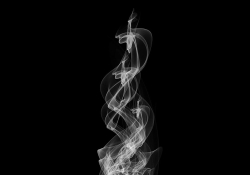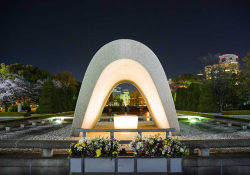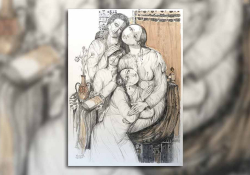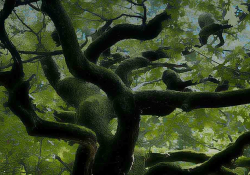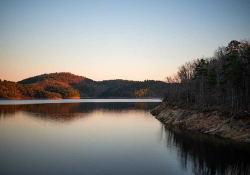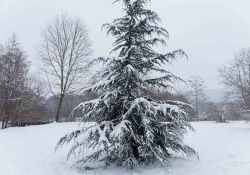Siberian Romance
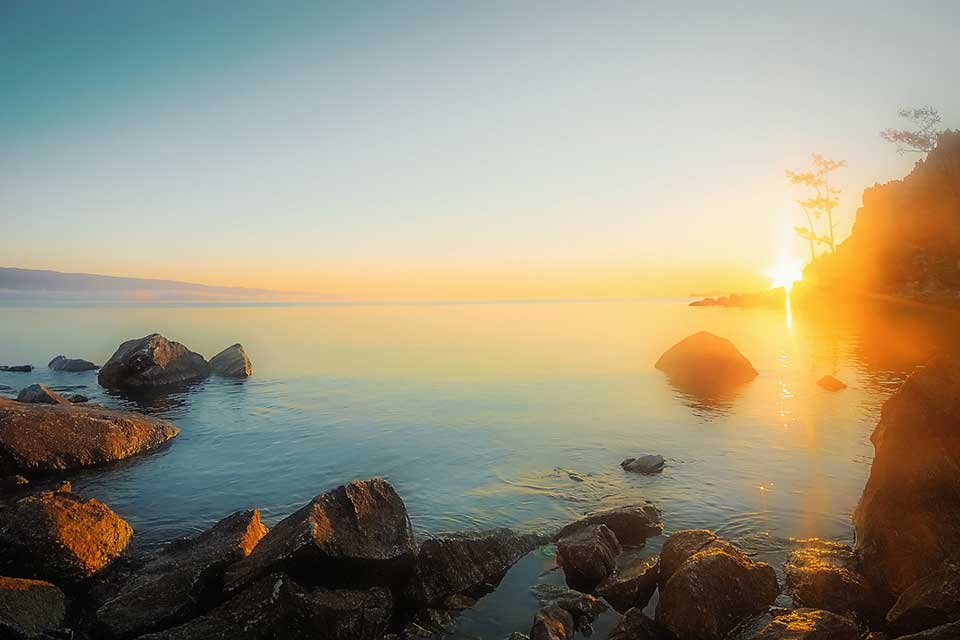
My name is Iaromira
Forgive me if I speak of sad things
When my footsteps echo in my bones
A silence saved me from the word
Another silence will save the word
And the wind shall be my home
*
I saw the stars swim and I saw the hare’s handsome loins
I learned that if you ride a river then another
Nothing is really faraway
I twirled a ring on my finger for a long time
I learned that one thinks differently in the cold
And the wind shall be my home
*
Snowfall could spread throughout my veins
Patience was in me like bread on the table
My thumbs shaped clay faces
My left hand knew how to aerate the milk
There was a trace of amber in my eyes
A fleck of green from our marshes
And the wind shall be my home
*
Like the blackbird and the wild bee
I was the black elderberry’s friend
I liked the nonchalant pride
Of men and sunflowers
The laughter on which rebounds
The small pearl of a broken necklace
And the wind shall be my home
*
Lean your face against me
Lean it on the last traces of summer
Together we shall open
The ripe watermelon and the book
In the faraway pool of a mirror
You will see me always young
And the wind shall be my home
*
Whether you came for the worship of the lakes
Or for the sweetness of being nothing
Brace your back against the rock
Don’t gamble away the key to heaven
Whether you came for a swallow’s frozen body
Or for boundless love and boundless oblivion
A rowboat will come near
And the wind shall be my home
*
Death is an angel
Who returns to look for her wings
There are no roads in this land
Only directions
I stroke the necks of the animals
That graze in your silence
And the wind shall be my home
*
We were bursting
Like rivers in springtime
The day when the horses cried
I stored up destitution
And the wind shall be my home
*
You who are closing your eyes
As if getting ready to sing
Do you feel this minuscule heart
With its relentless light
Like a wounded bee?
The bogs are an earthen archive
Under our feet – centuries of pollen
In the sky – the leave-taking of cranes
And the wind shall be my home
*
Dawn’s wet muzzle brushes against us
The curlew wakens near the broken oars
And the spider resumes her weaving
The legend of men
With eyes like ripe black currants
Will bloom again in strangers’ hands
And the wind shall be my home
*
We left the wooden pier
And entered a cold scintillation
It was as if we felt within us
The entire uninhabited span
Where hearts are translated
Until darkness is exhausted
From one face to another
In the night of the river’s wide waters
And the wind shall be my home
*
The strip of red fabric
Has not faded in my memory
When winter returns
May a handful of snow
Tilt the scale
Toward the unwavering
And the wind shall be my home
Translations from the French
Editorial note: Translated by Alice-Catherine Carls, with the support and participation of Daniel Simon, Jean-Baptiste Para, and Stuart Dybek. For more on Para’s life and work, see “Dancing with Words: The Poetry of Jean-Baptiste Para,” by Alice-Catherine Carls.

Born in Paris in 1956, Jean-Baptiste Para is a French poet, art critic, essayist, translator, editor of numerous books, and editor in chief of the French journal Europe, which was founded by Romain Rolland in 1923. The author of five volumes of poetry, his poems have been translated into half a dozen languages and anthologized in several more. He also directs the foreign poetry section “D’une voix l’autre” for the literary press Cheyne and co-produced the program Poésie sur parole for France Culture from 1994 to 2004.

